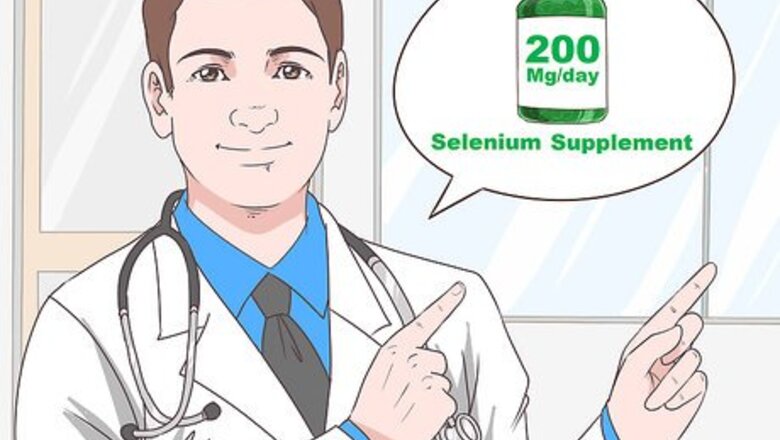
views
X
Trustworthy Source
MedlinePlus
Collection of medical information sourced from the US National Library of Medicine
Go to source
Dealing with hyperthyroidism and Graves' disease can be hard, but you may be able to treat your condition naturally. However, check with your doctor before using supplements. Additionally, see your doctor before treating yourself, if your symptoms don't improve, or if you develop severe symptoms.
Changing Your Diet and Supplements
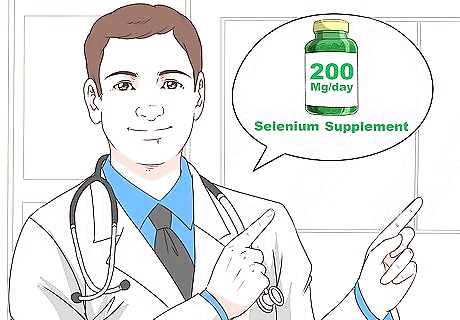
Use a selenium supplement to help restore your thyroid. Selenium may help restore your thyroid, when you use it in conjunction with other, more conventional treatments. Keep in mind, though, that selenium is not likely to work as a treatment by itself. Try 200 micrograms of selenium a day, under the guidance of your doctor.
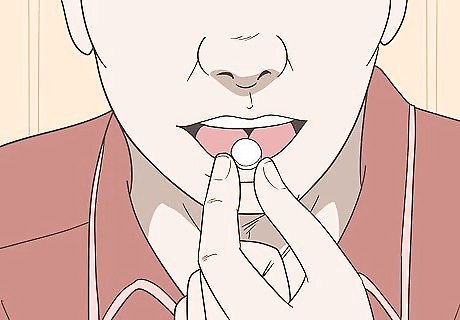
Take an L-carnitine supplement to improve muscle weakness. L-carnitine is an amino acid, which are the building blocks of proteins in your body. Hyperthyroidism often decreases the amount of L-carnitine you have in your body, resulting in muscle weakness and other symptoms. Taking a supplement may help. Typically, you start on a 500 milligram dose, but you can take up to 2–4 grams (0.071–0.14 oz) per day. Talk to your doctor about an appropriate dose.
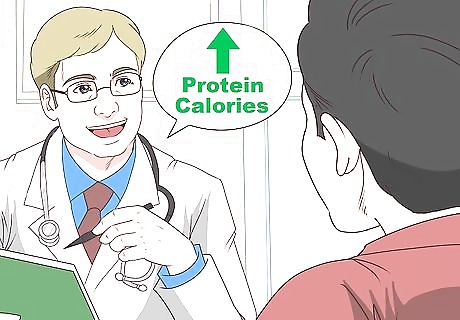
Meet with a dietician to increase protein and calories in your diet. If your hyperthyroidism has caused you to lose a lot of weight, you may need to increase your caloric intake. Protein, in particular, can help if you lost muscle mass due to the condition. Reach for healthy sources of protein, such as fish, poultry, lean red meat, beans, and eggs.
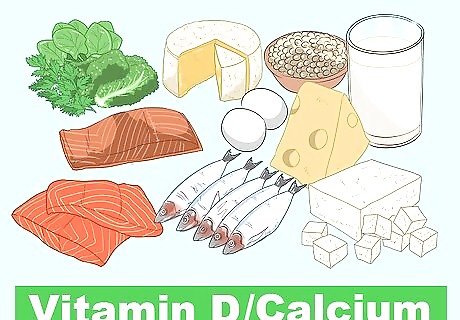
Increase your calcium intake to help with thinning bones. This condition can cause brittle or thin bones, so getting enough calcium is important. If you're not getting enough from your diet, ask your doctor about taking a calcium supplement. Aim for 1,000 milligrams of calcium a day if you're a man age 19-70 or a woman age 19-50. If you're a woman who's older than 50 or a man older than 70, increase your intake to 1,200 milligrams per day. Vitamin D helps your body absorb calcium, so aim for 4000 IU in preteens, teens, and adults. Ask your doctor for a blood test to check your vitamin D levels to make sure you're getting enough. Good sources of calcium include dairy products, leafy greens, tofu, foods with fortified flour, and canned fish with bones. For vitamin D, reach for fortified products like milk or orange juice. Fatty fish, like tuna, salmon, swordfish, and mackerel, also contain vitamin D. Additionally, you can get vitamin D from mushrooms.
Limiting Sources of Iodine

Avoid eating foods that are high in iodine. Foods like seaweed are high in iodine, and you should avoid them when possible. Seafood can also be high in iodine. These foods can make the symptoms of your hyperthyroidism worse. Many Asian foods use seaweed. You'll find it in sushi and some Asian soups, for instance.
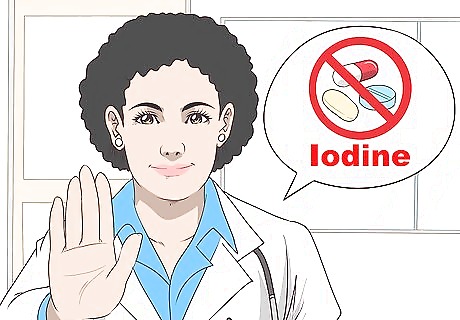
Choose a multivitamin that doesn't have iodine. Some multivitamins provide a source of iodine. If yours does, you should talk to your doctor before continuing it. Your doctor may recommend that you stop taking it. It may be listed as potassium iodide or sodium iodide in the ingredients.
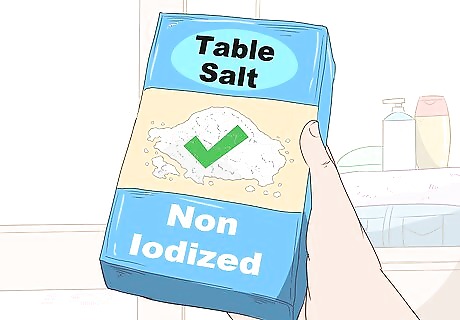
Skip the iodized salt. While you're recovering from hyperthyroidism, it might be a good idea to skip the iodized salt. When you buy your salt at the store, look for one that doesn't have added iodine.
Dealing with Symptoms of Graves' Disease
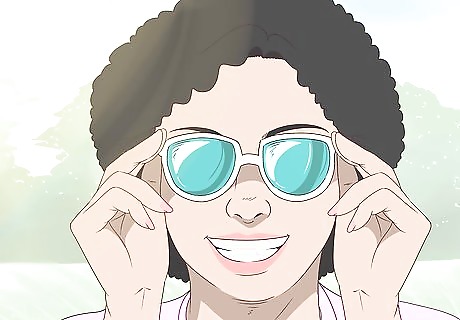
Protect your eyes with sunglasses. Graves' disease can make your eyes protrude, which makes them more susceptible to sunlight and wind damage. Sunglasses help protect your eyes from these damaging effects. Opt for larger sunglasses that wrap around the sides of your eyes. Make sure they block 100% of UV rays.
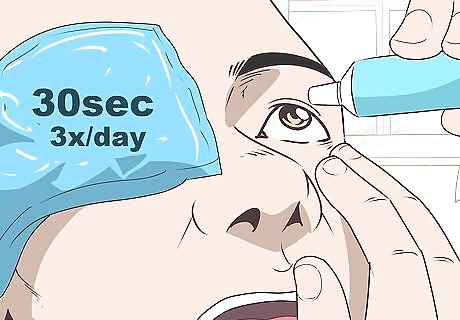
Use eyedrops and cold compresses to provide pain relief for your eyes. If your eyes are irritated, cool compresses may help, likely due to the extra moisture. Similarly, eye drops can help relieve dry, scratchy eyes. Try using cold compresses 3 times a day for 30 seconds at a time. To make one, wrap ice in a clean, soft washcloth and hold it to your eyes. Don't choose eyedrops with redness removers. You can also try a lubricating gel before bed, which can help with nighttime dryness.
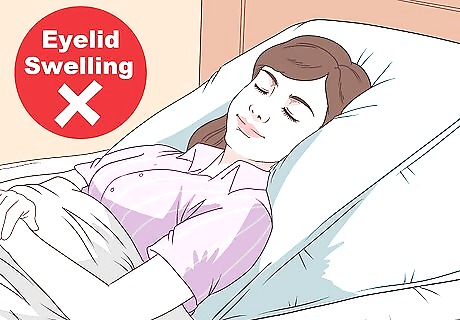
Elevate your head at night to prevent eyelid swelling. This condition can cause your eyelids to swell at night, which can be painful. Elevating your head can provide some relief, as it allows gravity to gently decrease the swelling by pulling fluid to the rest of your body. Use pillows to prop up your head or buy an adjustable bed that allows you to elevate your head.
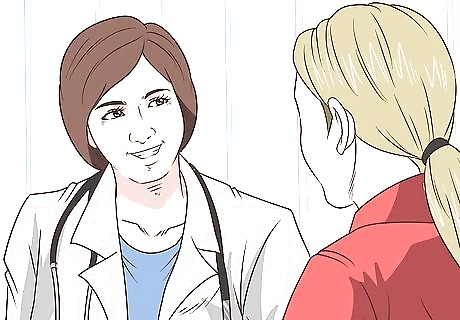
Manage your stress and use self care to cope with anxiety. Anxiety is a common symptom of Graves' Disease, and it can have a serious impact on your life. It's best to work with a doctor to create a plan for managing your anxiety. This will likely include learning ways to cope with your anxiety, relieving stress, and practicing self care. Here are some ways to get started: Talk to a friend or therapist about your feelings. Write in a journal. Go for a 30 minute walk outside. Color in an adult coloring book to help you relax. Use progressive muscle relaxation. Create a routine to help you manage your responsibilities without feeling overwhelmed. Ask for help when you need it.
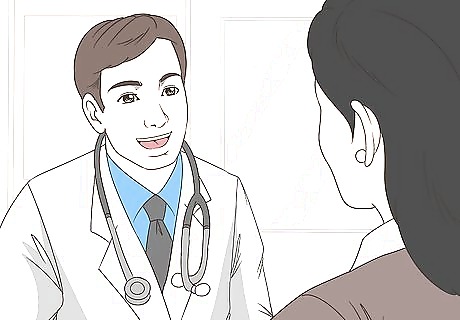
Work with a dietitian to increase your calories if you're losing weight. Your hyperthyroidism may make you lose weight without you trying, which can be problematic if you're dropping below a healthy body weight. Talk to your doctor to find out what your target weight range should be. Then, work with a dietitian to help you create a healthy diet for maintaining a healthy weight. Your dietitian will help you figure out ways to increase your calories using healthy foods that you enjoy.
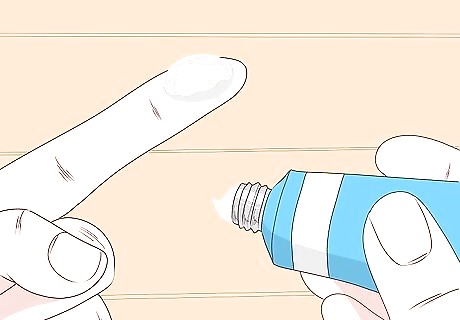
Use hydrocortisone cream and compression wraps to deal with skin issues. You may notice areas of redness or swelling on your skin. You may be able to relieve these symptoms by applying a thin layer of over-the-counter hydrocortisone cream, which is a steroid. Additionally, wear compression wraps to manage swelling in your legs. Check with your doctor before using hydrocortisone cream, and only use it as directed on the label. It may cause side effects like thinning skin or irritation if you use too much. Make sure that your compression wraps aren't so tight that they're cutting off your circulation. They shouldn't feel painful, and you should be able to get your finger under the wrap.
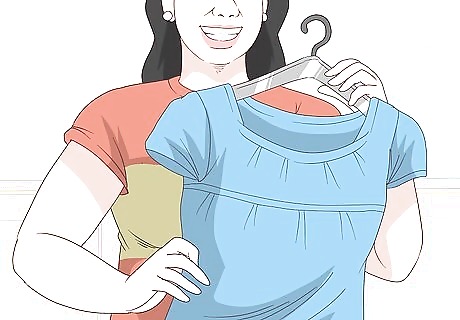
Wear loose clothing and carry a personal fan to stay cool. You will likely feel very sensitive to heat and may perspire a lot. Wearing loose, lightweight clothing can help you feel cooler. Additionally, use a personal fan to help cool you off on hot days, and drink a lot of water to replace fluids lost from sweating. Try to stay in the shade or inside as much as possible on hot days.
When to Seek Medical Care
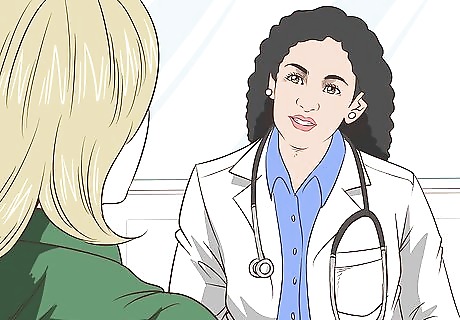
Check with your doctor before using supplements. While supplements are usually safe, they aren't right for everyone. They can interfere with your medications or worsen certain medical conditions. Talk to your doctor to make sure supplements are safe for you to take. Tell your doctor which supplements you plan to take, as well as the supplements or medications you're already taking. Additionally, let them know you're trying to treat your hyperthyroidism.
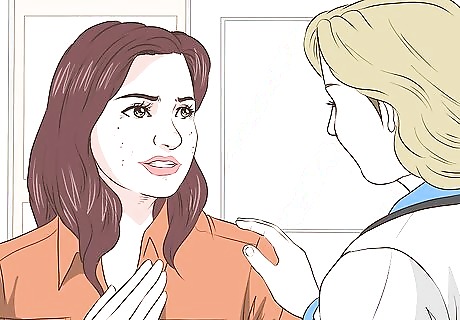
Visit your doctor if your symptoms aren't improving. The best treatment for you will depend on what's causing your hyperthyroidism and how severe your symptoms are. If your natural treatments aren't helping, you may need to try a medical treatment to manage your symptoms. Talk to your doctor to learn about your options. Your doctor may prescribe beta blockers, antithyroid medication, or radioiodine therapy to treat your condition. In some cases, you may need to have surgery to manage your hyperthyroidism.
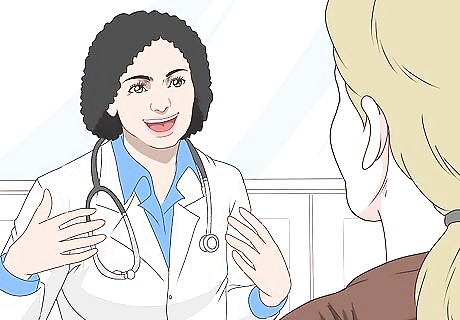
See your doctor regularly while treating hyperthyroidism. Your doctor will monitor your progress to make sure your treatments are working. If they're not, your doctor can help you choose new treatments to try. This will ensure that you're getting better. Ask your doctor how often you need to come in for a check up and follow their advice. If you're managing your condition well, your doctor may not recommend you come in as often. However, they may want to see you frequently while you're experiencing symptoms.
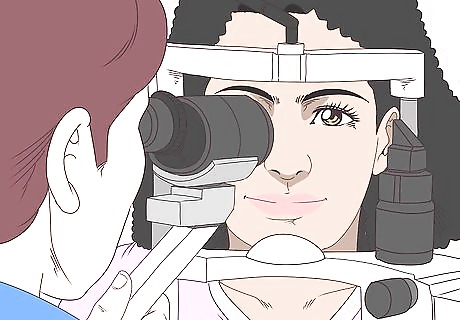
See an ophthalmologist if you start having trouble seeing. Graves' disease can cause eye problems that may lead to blurred vision, double vision, or vision loss. If you start to notice eye problems that worry you, visit your ophthalmologist to make sure everything is okay. Try not to worry because your symptoms may be temporary. Managing your symptoms may help you improve.
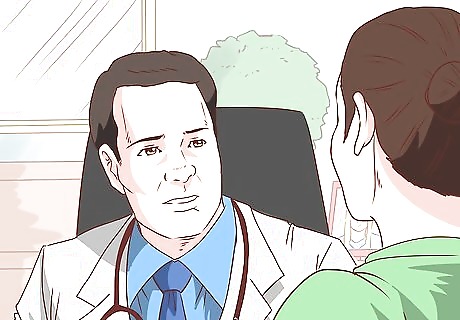
Talk to your doctor if you're experiencing tremors. Graves' disease may cause tremors in your hands or fingers, which can be scary and frustrating. Your doctor may be able to help, so talk to them to learn about your treatment options for managing your tremors. You may be able to take medication or try other treatments to help with the tremors. Let them know that you prefer to use natural treatments when they're available.
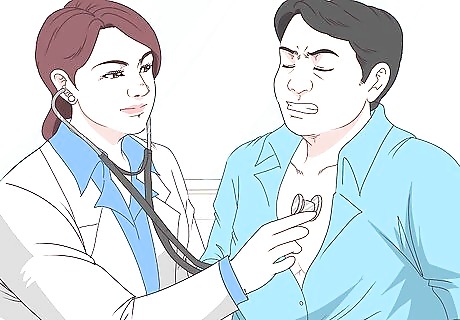
Get immediate medical care if you start having heart problems. In some cases, Graves' disease can cause heart complications, including rapid heartbeat and atrial fibrillation, which increases your risk of stroke or heart failure. Try not to worry because you can get treatment. Make an appointment to see your doctor immediately or go to an emergency room if your symptoms are concerning to you. Managing your Graves' disease can help prevent this type of complication.













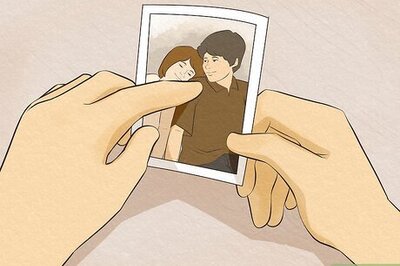


Comments
0 comment